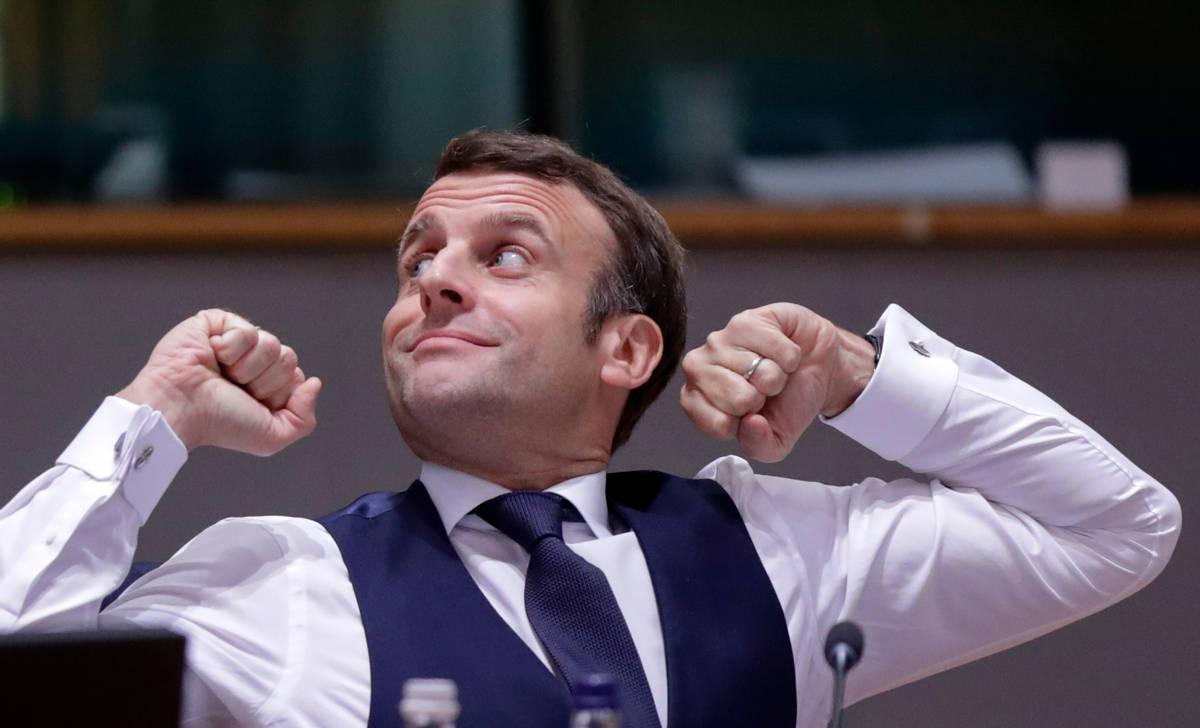In light of the Pegasus spyware case, French President Emmanuel Macron has changed his phone and phone number, according to a presidential official on Thursday. This is one of the first tangible steps disclosed in connection to the controversy.
“He’s got several phone numbers. This does not mean he has been spied on. It’s just additional security,” the official told Reuters. In consideration of the episode, government spokesperson Gabriel Attal said the president’s security measures were being adjusted.
When numerous international media organisations disclosed that the Pegasus spyware had been used to infiltrate smartphones belonging to journalists, human rights activists, and government officials in several nations, it sparked a global outrage.
Also Read: Anil Ambani among potential Pegasus Spyware targets: Report
A top legislator in Israel, where NSO Group, which sells the Pegasus software, is based, said a parliamentary panel may investigate spyware export limits. NSO has maintained that their software is used to combat crime and terrorism, and the company has denied any wrongdoing.
“Obviously we’re taking (this) very seriously,” Attal told reporters hours after an emergency cabinet meeting focused on the Pegasus allegations.
On Tuesday, the newspaper Le Monde and the radio station Radio France reported that Macron’s phone was on a list of prospective targets for Moroccan monitoring. The two outlets said they didn’t have access to Macron’s phone and couldn’t confirm if it had been tapped.
These allegations have been refuted by Morocco.
German Chancellor Angela Merkel told reporters in Berlin that spyware should be banned in nations where there is no judicial oversight.
Multiple concerns made in the aftermath of the reports prompted Hungarian prosecutors to initiate an inquiry on Thursday.
Israel has formed an inter-ministerial panel to investigate claims that Pegasus was used in attempted or successful smartphone intrusions employing software that allows for the extraction of messages, the recording of calls, and the hidden activation of microphones.
Also Read: How France is coping with its fourth wave of COVID infections
The NSO has dismissed the media partners’ reporting as “full of wrong assumptions and uncorroborated theories”. The information has not been independently confirmed.
“We certainly have to look anew at this whole subject of licences granted by DECA,” Ram Ben-Barak, head of the Knesset Foreign Affairs and Defence Committee, told Israel’s Army Radio, referring to the government-run Defence Export Controls Agency.
The Israeli government team “will conduct its checks, and we will be sure to look into the findings and see if we need to fix things here”, said Ben-Barak. A former deputy chief of Mossad, he said proper use of Pegasus had “helped a great many people”.
NSO exports are supervised by DECA, which is part of Israel’s Defense Ministry. Pegasus is intended to track only terrorists or criminals, according to both the ministry and the company, and all international clients are vetted governments.
According to NSO, it does not know the exact identity of the persons against whom Pegasus is used. If NSO gets a complaint that Pegasus has been exploited by a customer, the firm claims it may retrospectively obtain the target lists and, if the allegation is proven accurate, shut down that client’s software unilaterally.
Pakistani Prime Minister Imram Khan and Morocco’s King Mohammed VI are among the international leaders whose phone numbers are believed to be on a list of prospective targets, according to the news organisations.







